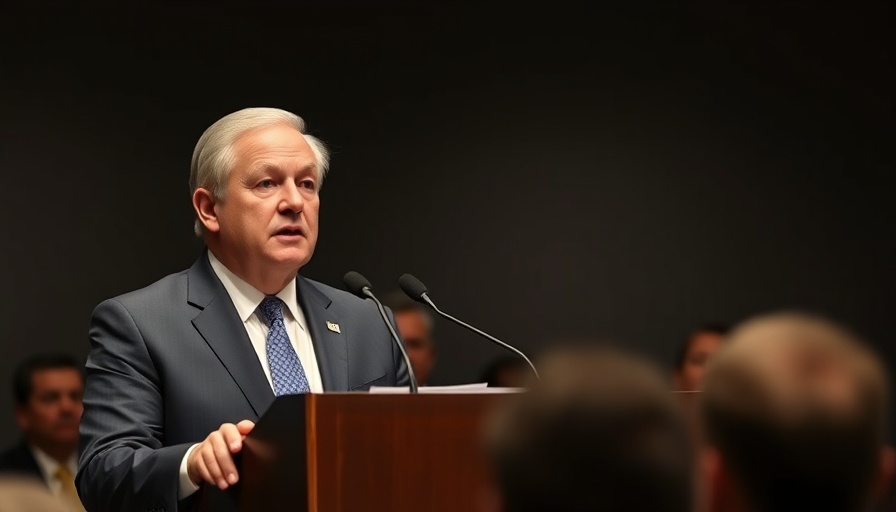
Understanding the Rationale Behind Ebrahim Rasool’s Remarks
The ongoing diplomatic crisis between the United States and South Africa has escalated dramatically following comments made by South African Ambassador Ebrahim Rasool regarding President Donald Trump. Rasool described Trump and his supporters as propagators of a "supremacist" movement that perpetuates the notion of "white victimhood." This statement has triggered widespread repercussions, leading to Secretary of State Marco Rubio declaring Rasool 'persona non grata' in the U.S. and stating he is no longer welcome, a rare diplomatic rebuke that could have profound implications for bilateral relations.
The Political Landscape: Beyond the Feud
This diplomatic rift is more than a mere personal conflict; it represents the underlying tensions that have developed over several years. Rasool's accusations echo sentiments voiced by critics, who argue that the Trump administration has often aligned itself with various forms of racial and nationalistic rhetoric that resonate deeply, particularly in a multicultural nation like South Africa. In this context, it becomes clear that the remarks are not merely a knee-jerk reaction but a reflection of broader anxieties surrounding global racial dynamics.
Legal and Diplomatic Ramifications of Persona Non Grata Status
Declaring a diplomat 'persona non grata' is a significant diplomatic tool, often used to signal the utmost disapproval of a diplomat's actions or statements. By invoking this status against Ambassador Rasool, the U.S. may compel South Africa to either recall him or elevate the tensions further. This situation raises questions about how diplomatic interactions will unfold moving forward, especially under the shadow of ongoing issues such as land expropriations in South Africa and the contentious political climate that surrounds Trump.
The Role of Major Influencers in U.S.-South Africa Relations
A pivotal figure in this discord is Elon Musk, a South African-born billionaire, who has made headlines for promoting narratives around "genocide" against white farmers in South Africa. Musk's influence, particularly his position as a close advisor to Trump, adds an additional layer to the ongoing diplomatic tensions. His statements and advocacy for the Afrikaner community have permeated discussions and policies, leading to heightened scrutiny of U.S. foreign aid to South Africa and its implications.
Historic Context: Racial Dynamics and International Relations
The tensions between the United States and South Africa can be traced back through history, with apartheid having created deep-seated racial divides that, while formally abolished, continue to echo through contemporary politics. The allegations of racism and white supremacy leveled by both American and South African politicians highlight how historical injustices can resurface in discussions about the present. Thus, this feud cannot be understood without recognizing the lingering effect of apartheid on current U.S.-South Africa relations.
Future Implications for International Affairs
The implications of this feud extend beyond mere political banter and touch upon broader themes in international relations. Observers predict that this strained relationship could hinder cooperation on critical global issues, such as climate change, trade, and security matters, particularly given South Africa's significance as a regional powerhouse. How both nations navigate this diplomatic crisis will be crucial for future engagements, possibly requiring a re-evaluation of their respective foreign policies and bilateral agreements.
Conclusion: The Importance of Addressing Racial and Diplomatic Tensions
As this conflict unfolds, it emphasizes the vital need for dialogue in understanding and remedying racial tensions that exist not just in South Africa but around the globe. For both American citizens and South Africans, fostering reasonable discussions around these complex histories is essential for promoting a more compassionate international environment. Addressing such weighty issues with attentiveness and care could lead to resolutions that respect the intricacies of each nation's history, ultimately benefiting global harmony.
 Add Row
Add Row  Add
Add 




Write A Comment